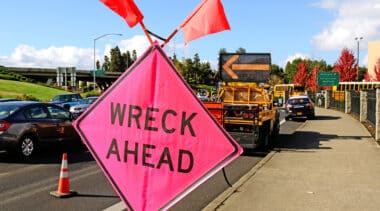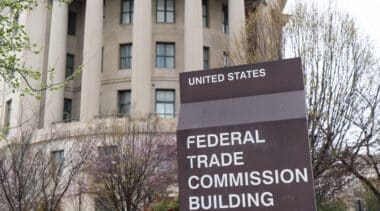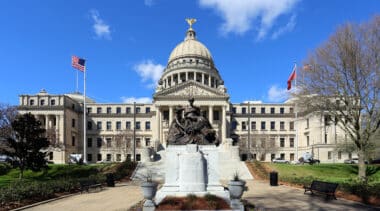-
We can’t design and regulate away all risks of roads
Safer streets are a laudable goal worth pursuing, but engineers are not designing streets with the intention of them being unsafe.
-
Texas death row inmates sue over indefinite solitary confinement
The lawsuit alleges that all 184 men currently on death row in Texas are confined to their 8-by-12-foot cells for 22-to-24 hours each day.
-
Tolling and mileage-based user fees would help produce better highways for Michigan
Michigan's highways need fixing, but the state is woefully short of the transportation funding required.
-
Discretionary government power often backfires, no matter its target
The left and right should be concerned about discretionary and targeted power wielded by regulators and the executive branch.
-
Mississippi needs to fix the way it pays for public pensions
Mississippi should shift to an actuarially determined contribution funding policy.
-
Alaska’s defined contribution retirement plan is better for most workers than defined benefit plan
While the defined contribution plan in place in Alaska could be enhanced, it is a plan that recognizes the reality of the modern workforce.
-
States should think twice before regulating AI
AI is already being used in important ways that would be harmed by an AI freeze or a rollback.
-
Studies suggest pension benefits don’t help recruit or retain teachers
Two survey studies reveal that existing retirement options may be misaligned with teachers’ retirement preferences.
-
California’s social equity programs are failing victims of the drug war
California must remove regulatory barriers preventing people ensnared in the failed war on drugs from participating in the state’s legal marijuana market.
-
Tennessee Gov. Lee signs significant transportation bill with choice lanes
No state has attacked traffic congestion in the systematic, statewide manner that Tennessee did with its Transportation Modernization Act.
-
Examining why Oklahoma voters rejected legalizing recreational marijuana
Oklahoma has the nation's largest medical cannabis market but rejected recreational adult use.
-
Florida’s Digital Bill of Rights is a regulatory trojan horse
Florida's heavy-handed government regulations would make the internet less friendly for consumers and do damage to Florida’s small businesses.
-
The latest on proposed psychedelics legalization in states
Pending legislation across roughly a dozen states signals that this shift toward the legalization of psychedelic therapies may continue.
-
The SMART grant process isn’t transparent or serving federal taxpayers’ interests
Taxpayers should have a clear explanation of the national infrastructure interests advanced by federal SMART grants.
-
California considers legislative changes to its legal cannabis market
California’s legal marijuana market is plagued by high taxes and burdensome regulations.
-
Examining the trucking industry’s opposition to tolling highways
Three of trucking’s four main concerns about tolling are valid—and fixable by legislation.
-
Congress investigates the FDA’s chaotic tobacco policy
Research has shown e-cigarettes to be substantially safer than combustible cigarettes and more effective than nicotine replacement therapies at helping smokers quit smoking.
-
U.S. air travelers would benefit from more airline deregulation, not re-regulation
Policymakers are facing renewed pressure from misguided activists and special interests to resurrect the failed policies of the past.

















